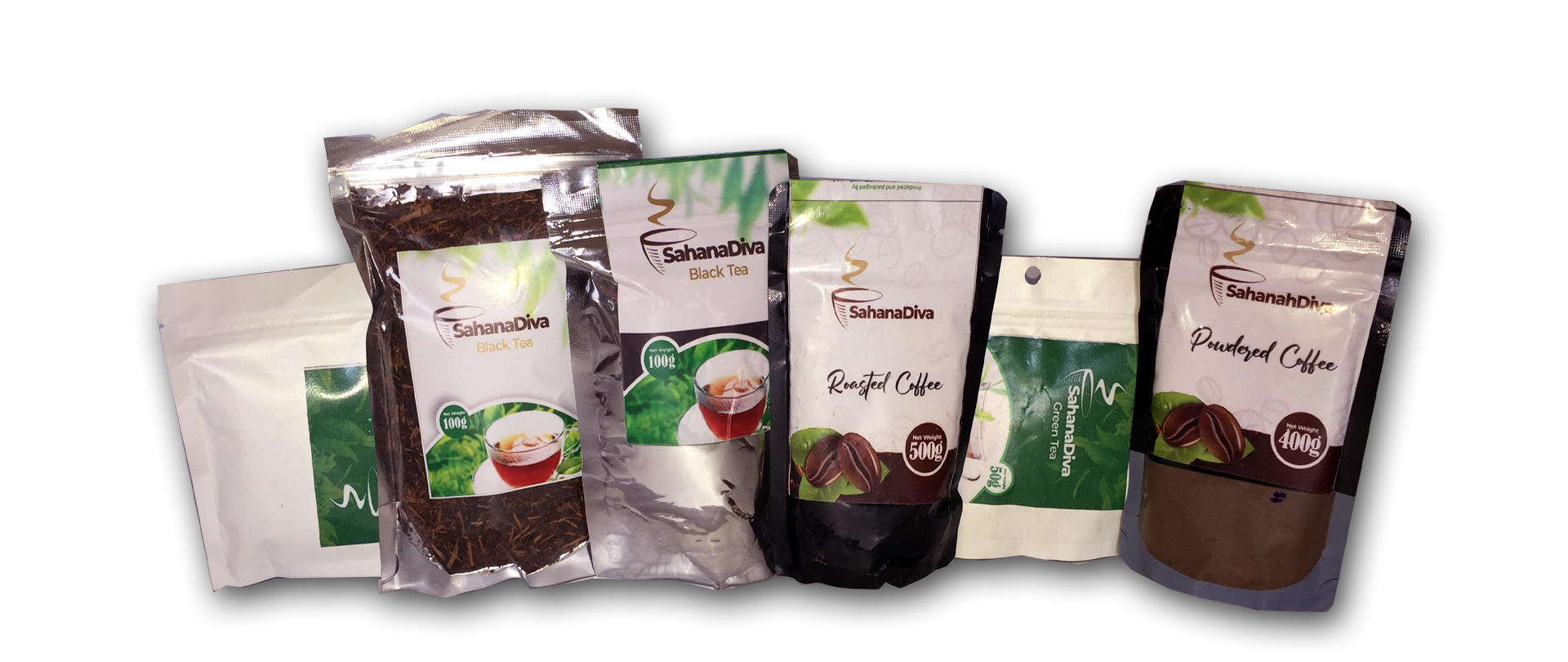HEALTH BENEFIT OF TAKING TEA

SahanaDiva TEA
Tea is an aromatic beverage prepared by pouring hot or boiling water over cured or fresh leaves of Camellia sinensis, an evergreen shrub native to East Asia which probably originated in the borderlands of southwestern China and northern Myanmar. Tea is also made, but rarely, from the leaves of Camellia taliensis.
What type of drink is tea?
tea, beverage produced by steeping in freshly boiled water the young leaves and leaf buds of the tea plant, Camellia sinensis. Two principal varieties are used, the small-leaved China plant (C. sinensis variety sinensis) and the large-leaved Assam plant (C. sinensis variety assamica).

COFFEE Tea
9 Unique Benefits of Coffee
Medically reviewed by Maya Feller, MS, RD, CDN, Nutrition — By Rachael Ajmera, MS, RD — Updated on February 23, 2023
Coffee does more than boost your energy. A few daily cups of coffee may also lower your risk of type 2 diabetes and depression, support weight management, and help you live a longer life. Just keep in mind that experts recommend limiting caffeine if you’re pregnant or nursing.
Coffee is a beloved beverage known for its ability to fine-tune your focus and boost your energy levels.
In fact, many people depend on their daily cup of joe right when they wake up to get their day started on the right foot.
In addition to its energizing effects, coffee has been linked to a long list of potential health benefits, giving you all the more reason to get brewing.
This article takes an in-depth look at 9 of the top evidence-based benefits of coffee.
1. Boosts energy levels
Coffee contains caffeine, a central nervous system stimulant that is known for its ability to fight fatigue and increase energy levels (1 Trusted Source).
This is because caffeine blocks the receptors of a neurotransmitter called adenosine, and this increases levels of other neurotransmitters in your brain that regulate your energy levels, including dopamine (2 Trusted Source, 3 Trusted Source).
One small study found that consuming caffeine increased time to exhaustion during a cycling exercise by 12% and significantly reduced subjective levels of fatigue in participants (4 Trusted Source).
Another study had similar findings, reporting that consuming caffeine before and during a round of golf improved performance, increased subjective energy levels, and reduced feelings of fatigue (5 Trusted Source Trusted Source).
SUMMARY
Coffee contains caffeine, a stimulant that has been shown to increase energy levels and decrease fatigue by altering levels of certain neurotransmitters in the brain.
2. May be linked to a lower risk of type 2 diabetes
Some research suggests that consuming coffee regularly could be associated with a decreased risk of developing type 2 diabetes over the long term.
In fact, one review of 30 studies found that each cup of coffee people consumed per day was linked to a 6% lower risk of developing type 2 diabetes (6 Trusted Source).
This is thought to be due to coffee’s ability to preserve the function of the beta cells in your pancreas, which are responsible for producing insulin to regulate blood sugar levels (7 Trusted Source).
Plus, it’s rich in antioxidants and may affect insulin sensitivity, inflammation, and metabolism — all of which are involved in the development of type 2 diabetes (8 Trusted Source).
SUMMARY
Regular coffee consumption may be linked to a lower risk of developing type 2 diabetes over the long term.
3. Could support brain health
Although studies have turned up mixed results, some research suggests that coffee may help protect against certain neurodegenerative disorders, including Alzheimer’s disease and Parkinson’s disease.
According to one review of 13 studies, people who regularly consumed caffeine had a significantly lower risk of developing Parkinson’s disease. What’s more, caffeine consumption also slowed the progression of Parkinson’s disease over time (9 Trusted Source).
Another review of 11 observational studies in more than 29,000 people also found that the more coffee people consumed, the lower their risk of Alzheimer’s disease (10 Trusted Source).
Additionally, several studies have demonstrated that moderate coffee consumption could be associated with a lower risk of dementia and cognitive decline (11 Trusted Source, 12 Trusted Source).
SUMMARY
Some research suggests that drinking coffee could help protect against Alzheimer’s disease, Parkinson’s disease, and cognitive decline.
4. May promote weight management
According to some research, coffee could alter fat storage and support gut health, both of which may be beneficial for weight management (13 Trusted Source).
For example, one review of 12 studies concluded that higher coffee consumption could be associated with decreased body fat, especially in men (14 Trusted Source).
In another study, increased coffee intake was linked to decreased body fat in women (15 Trusted Source).
Furthermore, one study found that people who drank one to two cups of coffee per day were 17% more likely to meet recommended physical activity levels, compared with those who drank less than one cup per day (16 Trusted Source).
Higher levels of physical activity could help promote weight management (16 Trusted Source).
SUMMARY
Coffee could help support weight management and may be linked to decreased body fat. One study also found that people who consumed coffee were more likely to be physically active.
5. Linked to a lower risk of depression
Some studies have found that drinking coffee could be associated with a lower risk of depression.
According to one review of seven studies, each cup of coffee people consumed per day was linked to an 8% lower risk of depression (17 Trusted Source).
Another study found that drinking at least four cups of coffee each day was associated with a significantly lower risk of depression, compared with drinking just one cup per day (18 Trusted Source).
What’s more, one study in more than 200,000 people showed that drinking coffee was linked to a lower risk of death by suicide (19 Trusted Source).
SUMMARY
Several studies have found that coffee could be linked to a lower risk of depression and may even be linked to a lower risk of death by suicide.
6. Could protect against liver conditions
Interestingly, several studies suggest that coffee could support liver health and protect against disease.
For instance, one study found that drinking more than two cups of coffee per day was linked to lower rates of liver scarring and liver cancer in people with liver disease (20 Trusted Source).
Other research shows that the more coffee people drank, the lower their risk of death from chronic liver disease. Drinking one cup of coffee per day was tied to a 15% lower risk, while drinking four cups per day was linked to a 71% lower risk (21 Trusted Source).
Another recent study found that coffee consumption was associated with decreased liver stiffness, which is a measure healthcare professionals use to assess fibrosis, the formation of scar tissue in the liver (22
Trusted Source).
SUMMARY
Coffee consumption could be linked to a decreased risk of death from chronic liver disease, along with other conditions, like liver scarring and liver cancer.
7. Supports heart health
Some research shows that drinking coffee may benefit heart health.
In fact, one review found that drinking three to five cups of coffee per day was tied to a 15% reduced risk of heart disease (23 Trusted Source).
Another review of 21 studies showed that drinking three to four cups of coffee daily was associated with a 21% lower risk of stroke (24 Trusted Source).
What’s more, one study in more than 21,000 people also found that increased coffee intake was associated with a significantly decreased risk of heart failure (25 Trusted Source).
However, keep in mind that caffeine could affect blood pressure levels. Therefore, people with unmanaged blood pressure may need to limit or moderate their caffeine intake (23
Trusted Source, 26 Trusted Source).
SUMMARY
Some research shows that drinking coffee could be linked to a lower risk of heart disease, stroke, and heart failure.
8. Could increase longevity
Some research suggests that coffee could help extend longevity, thanks to its multitude of potential health benefits.
For example, one review of 40 studies concluded that drinking two to four cups of coffee daily was associated with a lower risk of death, regardless of factors like age, weight status, and alcohol consumption (27 Trusted Source).
Similarly, another study in 1,567 people found that drinking caffeinated coffee was linked to a lower risk of death after 12 and 18 years of follow-up. Furthermore, drinking at least one cup of coffee per day was also associated with a lower risk of death from cancer (28 Trusted Source).
Interestingly, one test-tube study showed that coffee was able to significantly extend the life span of yeast by protecting against free radicals and DNA damage (29 Trusted Source).
However, more research is needed to determine whether this could also apply to humans.
SUMMARY
Coffee could be associated with a lower risk of death, regardless of other factors, like age, weight status, or alcohol consumption. Still, more research is needed.
9. May enhance athletic performance
Coffee is often used as an ergogenic aid by athletes looking to improve performance and increase energy levels (30).
An ergogenic aid is also called a performance enhancer.
One review of nine studies reported that drinking coffee before exercise improved people’s endurance and decreased their perceived exertion, compared with a control group (31 Trusted Source).
Another study in 126 older adults found that drinking coffee was associated with improved physical performance and faster gait speed, even after the researchers adjusted for factors like age, belly fat, and physical activity levels (32 Trusted Source).
Additionally, a large review reported that moderate caffeine consumption could slightly improve power output and time-trial completion time. However, results varied, so the researchers also noted that caffeine may affect people differently (33 Trusted Source).
SUMMARY
Coffee could improve physical performance and endurance when consumed before exercising. However, some studies have turned up mixed results.
The bottom line
Coffee is a popular beverage that researchers have studied extensively for its many health benefits, including its ability to increase energy levels, promote weight management, enhance athletic performance, and protect against chronic disease.
Keep in mind that some people may need to limit their intake, including people who are pregnant or breastfeeding, children and adolescents, and people with certain health conditions (34 Trusted Source).
Still, drinking coffee in moderation — about three to four cups per day — has been associated with several health benefits and is generally considered safe for most adults

GREEN Tea
10 Evidence-Based Benefits of Green Tea
Medically reviewed by Amy Richter, RD, Nutrition — By Kris Gunnars, BSc and Dylan Bailey, MS, RD, FAND — Updated on June 9, 2023
Green tea may help support cognition, maintenance of moderate weight, and offer some protection against cancer.
Green tea is touted to be one of the healthiest beverages on the planet that could have many potential health benefits.
5 Evidence-Based Benefits of Green Tea
(Here are 10 possible health benefits of green tea.)
1. Contains plant-based antioxidant compounds
Green tea contains a type of polyphenol called a catechin. Catechins are antioxidants that help prevent cell damage and provide
Trusted Source
other health benefits.
The most well-known and abundant catechin in green tea is epigallocatechin-3-gallate (EGCG), which research
Trusted Source
has found may be involved in improving various health conditions or markers of disease.
SUMMARY
Green tea has polyphenol antioxidants, including a catechin called EGCG. These antioxidants could have various beneficial effects on health.
2. May improve cognitive function
A 2017 research paper
Trusted Source
found that drinking green tea may benefit cognition, mood, and brain function, possibly due to compounds in green tea like caffeine and L-theanine.
A 2020 study also suggested that green tea is linked with a 64%
Trusted Source
lower chance of cognitive impairment in middle-aged and older adults. More human studies are needed to further explore this effect.
SUMMARY
Green tea has functional ingredients that may combine to improve brain function and cognitive health. Green tea seems to be linked with a lower chance of cognitive impairment in middle and older age.
3. Could help with fat burning
A 2022 review found that the ability of green tea to positively influence your metabolism is enhanced with aerobic or resistance exercise.
That said, the National Institutes of Health Office of Dietary Supplements
Trusted Source
suggests that while some studies do show an ability for green tea to improve how your body breaks down fat, its overall effect on weight loss is likely to be small.
SUMMARY
Green tea may increase metabolic rate and increase fat burning in the short term, although not all studies agree. Green tea’s ability to improve fat burning is improved when paired with exercise.
4. Might lower the risk of some cancers
While the evidence is mixed and inconsistent, research
Trusted Source
has linked drinking green tea with a reduced chance of developing some types of cancer, such as lung cancer or ovarian cancer.
A 2020 review
Trusted Source
found that while experimental research shows a modest beneficial effect, scientists could not conclude any consistent effects of green tea on overall cancer likelihood. Additional high quality research is needed.
SUMMARY
There is some evidence of a relationship between drinking green tea and less chance of certain cancers. But, much more research in humans is needed to better explore this.
5. May protect the brain from aging
A 2020 study
Trusted Source
showed that green tea was linked with lower levels of certain markers related to Alzheimer’s disease in people without current, known cognitive issues. Compounds such as EGCG and L-theanine may be responsible.
However, a 2023 study reported that drinking too much, 13 cups or more per day (all types of tea), could increase the chance of Alzheimer’s disease. Clinical evidence on how exactly green tea affects the human brain is lacking.
SUMMARY
The bioactive compounds in green tea may support brain health. Green tea could be linked with less likelihood of neurodegenerative disease, but more clinical studies in humans are needed to clarify any effect.
6. Could help with oral health
A 2021 review
Trusted Source
of studies has found that drinking green tea, or using green tea extract, could be linked to better oral health.
However, most of the research on this subject did not examine human subjects. While results are promising, more clinical research in humans is needed.
SUMMARY
There is encouraging evidence that green tea could help with oral health, but additional studies are needed.
7. May help with the managing blood sugar
A 2020 review
Trusted Source
found that green tea may help reduce blood sugar while fasting in the short term but does not seem to have an effect on blood sugar or insulin in the long term.
A 2021 study on Chinese adults also suggested a 10% lower chance
Trusted Source
of death from type 2 diabetes for those who drink it daily.
Other reviews found no effects on any markers of blood sugar management in people with type 2 diabetes, so the findings are inconclusive. Read more about green tea and diabetes.
SUMMARY
The research is mixed on the role green tea may play in lowering the risk of type 2 diabetes, or helping with the overall management of type 2 diabetes.
8. Might help prevent heart disease
A recent review of studies suggests that regularly drinking green tea could lower many risk factors of heart disease, such as blood pressure or lipids.
That said, there is still a lack of consistent, long-term evidence in human clinical trials able to show cause and effect.
SUMMARY
Green tea could help lower some markers of heart disease. Studies show that people who drink green tea have a lower chance of heart disease, but more clinical evidence is needed to confirm the findings.
9. May help you lose weight
Several studies show that green tea may help with weight loss.
A 2022 study found drinking four or more cups of green tea daily was linked with a 44%
Trusted Source
lower chance of abdominal obesity, but the effect was only significant for women.
But green tea does not seem to make any changes
Trusted Source
to your levels of hunger and fullness hormones, which help regulate your appetite. There’s also mixed
Trusted Source
evidence on weight loss with green tea in general.
SUMMARY
Some studies show that green tea may lead to increased weight loss and lower fat accumulation in the abdominal area.
10. Might help you live longer
Green tea may have protective compounds against cancer and heart disease, which may help you live longer. Research
Trusted Source
from Japan found that those who drank five cups or more per day had a lower chance of death from all causes than those drinking one cup or less.
A 2021 study found that drinking seven cups of green tea daily decreased the risk of death from all causes by 62%
Trusted Source
, even among people who have had heart attacks.
SUMMARY
Studies show that people who drink green tea may live longer than those who don’t.
Frequently asked questions
What happens if I drink green tea every day?
Generally speaking, most people can enjoy green tea daily as part of an otherwise balanced eating plan. While the evidence is mixed, studies seem to show health benefits with three to five cups consumed daily.

BLACK TEA
10 Evidence-Based Health Benefits of Black Tea
Black tea is rich in antioxidants and may provide health benefits, including improved heart and gut health and a reduced risk for certain diseases.
Aside from water, black tea is one of the most consumed Trusted Source beverages in the world.
It comes from the Camellia sinensis plant and is often blended with other plants for different flavors, such as Earl Grey or chai.
It’s stronger in flavor and contains more caffeine than other teas, but less caffeine than coffee.
Black tea also offers a variety of health benefits because it contains antioxidants and compounds that may help reduce inflammation in the body.
(Benefits of black tea)
Here are 10 health benefits of black tea, all supported by science.
1. Has antioxidant properties
Antioxidants are known to provide a host of health benefits.
Consuming them can help remove free radicals and decrease cell damage in the body. This ultimately may help decrease the risk of chronic disease
(1 Trusted Source, 2 Trusted Source).
Polyphenols are a type of antioxidant found in certain foods and beverages, including black tea.
Groups of polyphenols, including catechins, theaflavins, and thearubigins, are the main sources of antioxidants in black tea and may promote overall health (3Trusted Source).
In fact, one study in rats examined the role of theaflavins and thearubigins in black tea and the risk of diabetes, obesity, and elevated cholesterol. Results showed that theaflavins and thearubigins reduced cholesterol and blood sugar levels (4 Trusted Source).
An older study examined the role of catechins from oolong tea on body weight. It found that those who consumed 690 mg of catechins from tea on a daily basis for 12 weeks showed a decrease in body fat (5 Trusted Source).
While many supplements contain antioxidants, the best way to consume them is through food and beverages. In fact, some research has found that taking antioxidants in supplement form may harm your health (6 Trusted Source).
SUMMARY
Black tea contains a group of polyphenols that have antioxidant properties. Consuming antioxidants may help decrease the risk of chronic disease and improve your overall health.
2. May boost heart health
Black tea contains another group of antioxidants called flavonoids, which benefit heart health.
Along with tea, flavonoids can be found in vegetables, fruits, red wine, and dark chocolate.
Consuming them on a regular basis may help reduce many risk factors for heart disease, including high blood pressure, high cholesterol, elevated triglyceride levels, and obesity (7 Trusted Source, 8 Trusted Source).
One large review of studies found that for every cup of tea consumed daily, there was a 4% lower risk of death from heart disease, 2% lower risk of heart attack and other cardiovascular events, a 4% lower risk of stroke, and a 1.5% lower risk of death from all causes (9 Trusted Source).
Another large prospective study found that people who drank tea daily had an 8% reduced risk of heart disease and a 10% reduced risk of major cardiac events, like heart attack, compared to those who had not drunk tea in the previous 12 months (10 Trusted Source).
Adding black tea to your daily routine is an easy way to incorporate antioxidants into your diet and potentially reduce your risk of future health complications.
SUMMARY
Black tea contains flavonoids, which are beneficial for heart health. Studies have found that regularly drinking black tea may help reduce the risk of heart disease.
3. May lower “bad” LDL cholesterol
The body contains two lipoproteins that transport cholesterol throughout the body.
One is low-density lipoprotein (LDL), and the other is high-density lipoprotein (HDL).
LDL is considered the “bad” lipoprotein because it transports cholesterol to cells throughout the body. Meanwhile, HDL is considered the “good” lipoprotein because it transports cholesterol away from your cells and to the liver to be removed from the bloodstream.
When there is too much LDL in the body, it can build up in the arteries and cause waxy deposits called plaques. This can lead to problems like heart failure or stroke.
Fortunately, some studies have found that consuming tea may help reduce LDL cholesterol.
One review of well-designed studies found that drinking black tea significantly reduced LDL cholesterol by 4.64mg/dL (11 Trusted Source). This effect was more pronounced in people with higher cardiovascular risk.
However, in another well-designed study, drinking five cups of black tea daily did not significantly change levels of total, HDL, or LDL cholesterol in people with borderline-high cholesterol compared to a placebo (12 Trusted Source).
SUMMARY
LDL and HDL are two types of lipoproteins that carry cholesterol throughout the body. Too much LDL in the body can increase the risk of heart disease and stroke. Studies have found that black tea may help reduce LDL levels, but results are mixed.
4. May improve gut health
Studies have found that the type of bacteria in your gut may play a significant role in your health.
While some of the bacteria in your gut are beneficial for your health, some are not.
In fact, some studies have suggested that the type of bacteria in your gut may play an important role in reducing the risk of certain health conditions, such as inflammatory bowel disease, type 2 diabetes, cardiovascular disease, obesity, and even cancer (13Trusted Source).
The polyphenols found in black tea may help maintain a healthy gut by promoting the growth of good bacteria and inhibiting the growth of bad bacteria (14 Trusted Source).
In addition, black tea may contain antimicrobial properties that kill off harmful substances and improve gut bacteria and immunity by helping repair the lining of the digestive tract.
However, further research is needed before a strong conclusion can be made regarding the role of black tea and immune function (15 Trusted Source, 16 Trusted Source).
SUMMARY
The gut houses trillions of bacteria and the majority of your immune system. Polyphenols and antimicrobial properties found in black tea may help improve gut health and immunity.
5. May help reduce blood pressure
High blood pressure can increase your risk of heart and kidney failure, stroke, vision loss, and heart attacks. Fortunately, changes in your diet and lifestyle can lower your blood pressure (17 Trusted Source).
One review of well-designed studies looked at the effects of drinking tea on blood pressure in people with hypertension, or high blood pressure.
The review found that regular tea intake helped lower systolic blood pressure by 4.81 mm Hg and diastolic blood pressure by 1.98 mm Hg in people with hypertension (18 Trusted Source). Further, those who drank tea regularly for longer than three months experienced even greater decreases in both systolic and diastolic blood pressure.
Another review of studies looking at the effects of black tea on blood pressure found that drinking black tea significantly reduced both systolic and diastolic blood pressure compared to control (19 Trusted Source). The effects were more pronounced for men and people who drank black tea for longer than seven days.
Drinking black tea on a daily basis, as well as incorporating other lifestyle modifications like stress management strategies, may benefit those with high blood pressure.
SUMMARY
High blood pressure can cause many health complications. Drinking black tea on a regular basis may help decrease systolic and diastolic blood pressure.
6. May help reduce the risk of stroke
A stroke can occur when a blood vessel in the brain is either blocked or ruptures. It’s the second leading cause of death worldwide (20 Trusted Source).
Fortunately, 80% of strokes are preventable. For example, managing your diet, physical activity, blood pressure, and not smoking can help reduce the risk of stroke (21 Trusted Source).
Interestingly, studies have found that drinking black tea may also help reduce the risk of stroke.
One prospective study of 365,682 people looked at the association between drinking tea or coffee and the risk of stroke, dementia, and post-stroke dementia.
After following participants for over 11 years, the study found that those who drank at least two cups of tea had a 16% lower risk of ischemic stroke compared to those who did not drink tea (22 Trusted Source).
Another study used genetic predictors associated with tea consumption to determine the association between drinking tea and stroke risk.
The study found that if you are genetically predisposed to drinking more tea per day, you also have a lower risk of stroke (23 Trusted Source).
SUMMARY
Stroke is the second leading cause of death globally. Fortunately, in many cases, it can be prevented. Studies have found that black tea may help reduce the risk of stroke.
7. May lower blood sugar levels
Elevated blood sugar levels may increase your risk of health complications, such as type 2 diabetes, obesity, cardiovascular disease, kidney failure, and depression (24 Trusted Source, 25 Trusted Source).
Consuming large amounts of sugar, particularly from sweetened beverages, has been shown to increase blood sugar values and the risk of type 2 diabetes (26 Trusted Source).
When you consume sugar, the pancreas secretes a hormone called insulin. Insulin allows the sugar to enter cells, including muscle and liver cells, to be stored as energy, or glycogen. When the body need to use energy, a different hormone, glucagon, is released to help the body break down glycogen to release energy. If you consume more sugar than your body has space to store a glycogen, then the excess sugar gets stored as fat.
Research suggests drinking black tea may help lower your blood sugar following a meal or snack, also known as postprandial glucose.
One small, well-designed study looked at the effect of drinking black tea on blood sugar levels following consumption of a high-sugar beverage.
Twenty-four people, both with and without pre-diabetes, consumed a high-sugar beverage along with either a low- or high-dose of black tea or a placebo. Those who drank the low- or high-dose of black tea had significantly lower postprandial (after eating) blood sugar compared to those who drank a placebo (27 Trusted Source).
Other studies suggest black tea may help enhance the use of insulin in the body.
A small study looked at the effects of consuming black tea on insulin response in men with obesity and insulin resistance.
Participants consumed 75g of glucose combined with either 100ml black tea, beetroot juice, or water. Those who consumed the black tea along with the glucose had about 29% lower insulin response compared to those who drank water (28 Trusted Source).
This suggests that drinking black tea may help improve insulin sensitivity, especially following a high-sugar meal or snack.
If you are buying black tea, especially pre-made tea, it’s important to check the packaging label. Some brands of pre-made black tea are sweetened with added sugars like sucrose or high fructose corn syrup. You can look for pre-made tea that is labeled as non-sweetened.
SUMMARY
Insulin is a hormone that is secreted when you consume sugar. Black tea is a great non-sweetened beverage that may help improve the use of insulin and reduce blood sugar.
8. May help reduce the risk of cancer
Over 100 different types of cancer exist, and some are not preventable.
Nevertheless, the polyphenols found in black tea may help slow the development of certain types of cancer and promote cancer cell death (29 Trusted Source).
One rigorous review of studies looking at the effects of tea on cancer risk concluded that drinking tea is associated with a lower risk of oral cancer (30 Trusted Source).
The authors state that tea may also be associated with a lower risk of other types of cancers as well, including cancers of the gastrointestinal tract, breasts, ovaries, lungs, and thyroid, but more well-designed studies are needed to know for sure.
Another review of studies looked at the effect of drinking green and black tea on the risk of endometrial cancer.
The study found that those drinking the highest amounts of green tea had a 22% reduced risk of endometrial cancer. Further, every increase in one cup of green tea per day was associated with an 11% reduced risk of developing endometrial cancer (31 Trusted Source).
However, no significant association was found between consumption of black tea and endometrial cancer risk.
Although black tea should not be considered an alternative treatment for cancer, some research has demonstrated black tea’s potential to help reduce the risk of certain types of cancers.
More research in humans is needed to more clearly determine the link between black tea and cancer cells.
SUMMARY
Black tea contains polyphenols, which may help fight cancer cells in the body. Although consuming black tea will not cure cancer, it may help decrease cancer cell development and reduce the risk of certain types of cancers.
9. May improve focus
Black tea contains caffeine and an amino acid called L-theanine, which can improve alertness and focus.
L-theanine increases alpha activity in the brain, resulting in relaxation and better focus.
Studies have found that beverages containing L-theanine and caffeine have the greatest impact on focus due to the effects of L-theanine on the brain (32 Trusted Source).
This may be why many individuals report more stable energy after drinking tea, compared to other caffeinated beverages like coffee.
In one small study investigating the effect of black tea on cognitive performance, participants consumed either 250ml of black tea or water. They were then given tests of executive function, sustained attention, memory, and mathematic calculations.
Those who consumed the black tea performed significantly faster on cognitive tasks, had improved memory, and made fewer errors (33).
The authors conclude that even a small amount of black tea can improve cognitive processing.
This makes black tea a great beverage if you are looking to improve energy and focus without a lot of caffeine.
SUMMARY
Black tea can help improve focus due to its content of caffeine and an amino acid called L-theanine. This amino acid increases alpha activity in the brain, which can help improve focus and alertness.
10. Easy to make
Not only is black tea good for you, it’s also simple to make.
To make black tea, first boil water. If using store-bought tea bags, simply add a tea bag to a mug and fill it with the hot water.
If using loose leaf tea, use 2–3 grams of tea leaves for every six ounces of water in a strainer.
Let the tea steep in the water for 3–5 minutes, depending on your taste preference. For a stronger tea, use more tea leaves and steep for a longer period of time.
After steeping, remove the tea leaves or tea bag from the water and enjoy.
SUMMARY
Making black tea is simple and takes only a couple minutes. You can use either tea bags or loose leaves and adjust the taste to your preference.
The bottom line
Black tea is a great option if you are looking for a low-calorie, non-sweetened beverage with less caffeine than coffee or energy drinks.
It has a strong, unique flavor and contains plenty of antioxidants, which can provide several health benefits. These may include improved cholesterol, better gut health, and decreased blood pressure.
Best of all, it’s simple to make and can easily be found at many stores or online.
If you haven’t done so before, consider trying black tea so you can reap its numerous health benefits.
HISTORY
Our experts continually monitor the health and wellness space, and we update our articles when new information becomes available.

